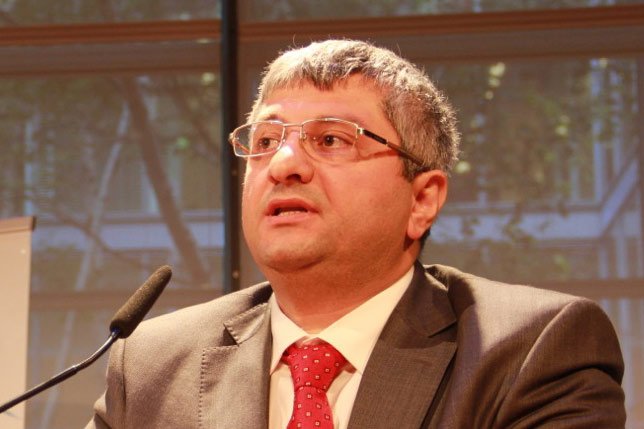Toward a culture of coexistence

Date posted: November 23, 2011
Ihsan YILMAZ 18 November 2011, Friday
ABUJA, NIGERIA — I am currently attending a conference titled “Establishing a Culture of Coexistence and Mutual Understanding.” As the conference organizers rightly underline, Nigeria is an important and relevant place for this conference not only because of its cultural, linguistic, ethnic and religious diversity, but also because it is where volunteers of the Hizmet movement inspired by Fethullah Gülen’s ideas have established 16 schools, a university and a hospital.
Students from all backgrounds are studying in peace in these schools, in a culture of coexistence of mutual understanding. Renowned professors from many different countries, from Bangladesh to South Africa, from Jordan to the United States will analyze how the movement has been proactively contributing to the establishment of a culture of coexistence through education, dialogue, poverty alleviation and media activities.
I believe the Turkish experience of contemporary attempts to revive the peaceful coexistence of the past, which the Hizmet movement took the lead in, is highly relevant for a diverse Nigerian society, which is unfortunately suffering from attacks targeting its culture of coexistence. Here about 60-65 percent of the nation is Muslim while about 30 percent is Christian and 5 percent are from other religions. In such a society, in order to guarantee its citizens their rights of freedom of speech, expression and religion, the state has to be neutral toward all religions. In such a society in the public sphere there will be some demands based on religion but the faithful must endeavor for a shift in their epistemic attitudes so that they can actively and emphatically contribute to the efforts of politicians to translate religious demands into a secular language.
It is my contention that this is something that has been achieved by the Hizmet movement. With an ijtihad (the decision making in Islamic law by way of personal effort, free from a particular school of thought) and tajdid (Islamic revival) understanding in sociopolitical issues, Gülen has argued, unlike the Islamists, that a human rights friendly passive Anglo-Saxon secularism could provide a wider framework to Muslims to practice their religion comfortably where other religious minorities could also benefit from human rights. He has highlighted that Islam does not need a state to survive and civil society in liberal-democratic settings is sufficient for its individual and social practice. In the political public sphere, religious demands could be negotiated by politicians in a secular language and this is how this has recently been done in the Turkish context.
Former Turkish Islamists have realized that instead of provoking the political public sphere with religious demands, a human rights friendly setting and a passive Anglo-Saxon secularism would be enough for the practice of Islam in the public space and even for making religious demands in the public sphere — even though the Turkish application of laicite does not make room for it at the moment.
The greatest danger to Nigeria’s well-being, prosperity and unity is ethnic and religious nationalism that is intolerant of the other and aims to suppress the other’s demands. This was a mistake made toward the end of the Ottoman Empire by Turkish nationalists who provoked Albanians and Arabs with their narrow-minded Turkish nationalist actions, and we all know the end result of their nationalism. Turks have also suffered a lot at the hands of the nationalists, and our current Kurdish problem is a result of these nationalist policies and attitudes. Having very rich oil reserves, Nigerians must be doubly vigilant and there are good lessons to be drawn from the Turkish experience.
Source: Today’s Zaman http://www.todayszaman.com/columnist-263245-toward-a-culture-of-coexistence.html
Tags: Africa | Conferences on Gulen | Dialogue | Nigeria |
























